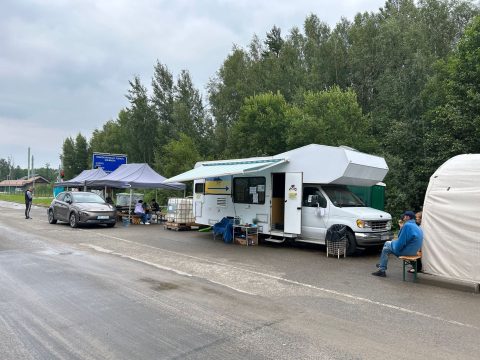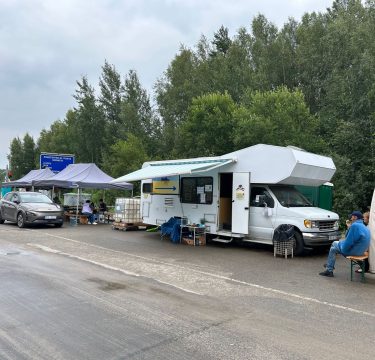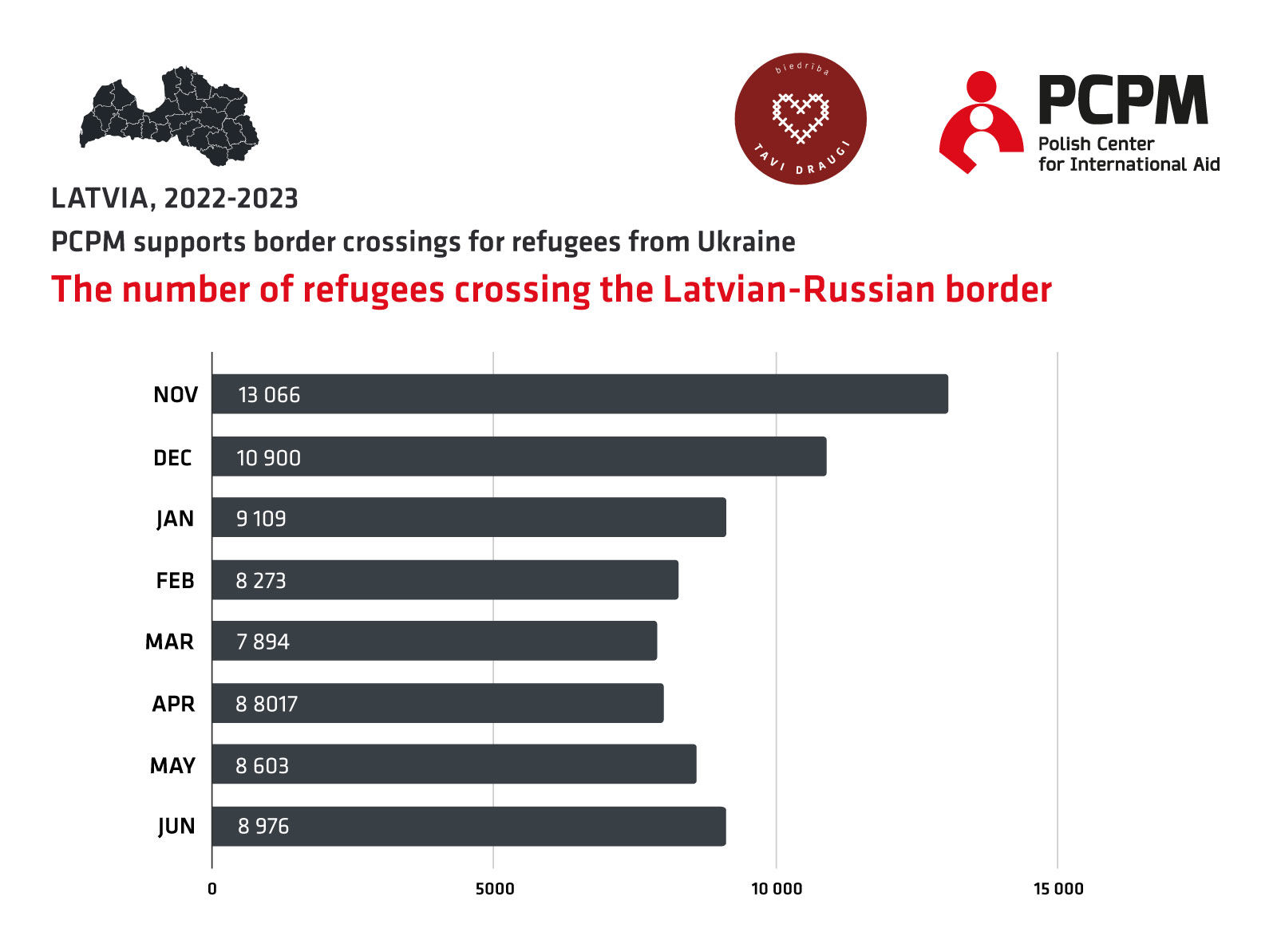Thousands of Ukrainians are fleeing the occupied territories. PCPM is also helping them in Latvia


There are four border crossings where Latvian volunteers from Tavi Draugi and PCPM operate, located in remote forests away from human settlements. Over 2,000 refugees pass through these crossings weekly, often traveling with just one backpack. During the several days-long journey, they cover over 3000 km, usually switching vehicles multiple times. They arrive at the border tired and stressed but relieved that they managed to cross it. The whole situation is tough for them.
Why are people from the occupied territories deciding to leave their homes only now?
Every month, new reasons arise.
Firstly, they didn’t want to live under Russian occupation, accept Russian citizenship, and face the consequences. Many also didn’t want to leave immediately because they feared losing their life’s work, while others lacked sufficient financial means. Another reason was the destruction of the dam in Nova Kakhovka and the lack of prospects for improvement.
This is illustrated, for example, by the story of Lyuba, a 58-year-old woman, and her 60-year-old husband from Toretsk. One day, due to intense shelling, the roof of their house collapsed. After subsequent shelling, only the walls were left, and they had to sleep in the basement. Eventually, even that became uninhabitable, and they made the very difficult decision to leave. It took them three days to reach Latvia. They arrived thirsty and exhausted.
Life under occupation
The stories told by the refugees reveal the true face of life under occupation. People experience much suffering. Theft is widespread. Russian soldiers enter homes and take whatever they want. They stop cars on the road and seize them for “military needs”. One woman had an exceptionally stressful experience when she was denied childbirth in a hospital and medical care unless she accepted Russian citizenship. From an observer’s perspective, the problem may seem trivial, but the circumstances and consequences associated with it are anything but.

A 55-year-old employee of the University of Luhansk refused to accept a Russian passport, stating, “Because of that, I lost my job and means of livelihood.” Alexander from the Kherson Oblast, already on the Latvian side, explains, “The occupiers put pressure on everyone to get a Russian passport, which means you may have to go to war against Ukrainians!” Young men were afraid to be out on the streets in the evenings, as the occupiers could catch them and send them straight to the war zone as “cannon fodder”. Several younger colleagues were lost in this way, as reported by a couple from Luhansk.
“I WAS SURE THAT I WOULD BE EXECUTED”
– I was sure that death was coming and that I would be executed. All the important people of the area were kept in that basement: policemen, members of the city administration, engineers,” said a man released from captivity and left near the Latvian border.
Volunteers help not only those who decided to escape on their own but also those who had no choice. Two of them told us how they survived 8 months in a basement. – There were several of us in the cell and there was a rule: no one slept for 2 days. If anyone fell asleep, everyone was tortured,” they recounted, unable to understand how they managed to survive.
According to accounts, in prison, they were fed only water and oatmeal and their stomachs shrank so much that the soup with bread we gave them was too hearty a meal for them. Tavi Draugi and PCPM volunteers arranged for them to rest at a friendly guest house and continue their journey.
In particular, the PCPM Foundation helps victims of armed conflicts and natural disasters in an effort to contribute to building a positive image of Poland in the international arena. An example of this is cooperation with the Latvian organization Tavi Draugi for the benefit of Ukrainian refugees at Latvian border crossings.